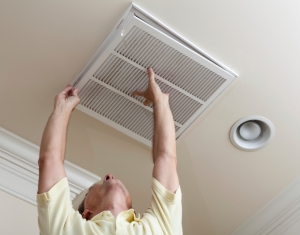Top Five Benefits of Hiring a General Contractor
If you’re ready to build your dream home, one of the first steps is deciding if you should manage the project on your own or hire a general contractor. With books, online videos and articles, you may feel ready to dive right in and construct your own home from the ground up. 
Before embarking single-handedly on the adventure of building a home, take some time to consider your decision carefully. While acting as your own general contractor can be an exciting and worthwhile experience, it also can be a complicated, technically demanding and time-consuming commitment. To ensure the end result of your project is a comfortable, well-built home for you and your family, consider the following:
Building Codes. The purpose of residential building codes is to provide minimum standards for the health and safety of the public. A general contractor deals with local building codes on a daily basis and is equipped with the expertise to comply with the rules and requirements.
Legal Issues. What happens if you, your neighbor or someone you’ve hired to work on your home gets injured while your home is under construction? If you’re taking on your own project, obtaining proper liability insurance is essential and may be complicated and expensive. Professional contractors generally carry both workers’ compensation and liability insurance to protect themselves—and you—against any unfortunate events.
 Expertise. Building a home is a complex activity. Subcontractors can provide specific expertise but if you act as your own contractor you will need to consider your ability to manage the overall process. Do you know the order in which activities must be completed? A general contractor is familiar with the process from start to finish and has a deep understanding of the smaller details that are essential to constructing a quality home.
Expertise. Building a home is a complex activity. Subcontractors can provide specific expertise but if you act as your own contractor you will need to consider your ability to manage the overall process. Do you know the order in which activities must be completed? A general contractor is familiar with the process from start to finish and has a deep understanding of the smaller details that are essential to constructing a quality home.
Project Management. Juggling everyday demands and family needs while building a home is a challenge. Home building is a full-time job. A general contractor is well-versed in all of the activities of home construction such as finding qualified subcontractors, monitoring their progress, ordering the right materials, securing permits and scheduling inspections.
Troubleshooting. An experienced contractor already knows about the pitfalls involved in building a home and can find solutions more easily because he or she deals with these problems every day. Small setbacks can turn into much larger issues if they are not handled quickly. A qualified contractor also has the expertise to prepare your jobsite for impending heavy rain or high winds. Bad weather can wreak havoc on your schedule and the quality of the construction.
For more information on home building or to find a building professional in your area, contact the Shenandoah Valley Builders Association.

















